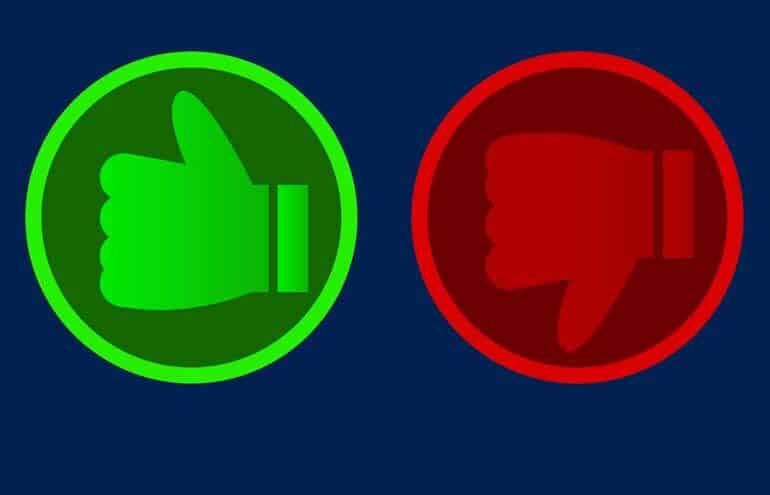Hiring is incredibly difficult right now no matter what industry you are in. Thankfully, many industries — including legal — have full-on embraced remote work. And for law firms, remote work opens the door to alternative hiring options, including outsourcing substantive legal work to freelance lawyers.
The good news is that it has never been easier to hire freelance attorneys to support and help build your business. Freelancers can help you reduce costs, improve efficiency, and allow existing employees to focus on core goals and tasks. It’s not hard to see why freelancers could represent 80% of the global workforce by 2030.
Despite this, it’s still possible to land yourself in a freelancing nightmare if you don’t hire correctly.
Screening Freelance Lawyers to Find the Right Fit
If you are embarking on your outsourcing journey, a structured hiring process — including background screening and interviews — will help you filter through the best candidates. Asking the right questions during the interview process is critical in helping you navigate the freelance space. Here are some essential questions to ask any freelance lawyer before you commit to hiring, as well as some common red and green flags to look out for along the way.
1. What experience do you have?
This question should be at the top of your list during the hiring process. Reading about all of this on a resume is one thing, but having an actual discussion with the freelancer about relevant experience and background will help you gain valuable insight.
In addition to understanding their practice area background, it’s important to know whether freelancers have worked in a team before and how they have performed. Similarly, understanding how long they have been freelancing and whether it suits them helps judge their ability to work well in this type of environment.
You should also ask about their specialist knowledge and skills to see if they will be adequately suited to the role. Knowing the clients and companies they have worked for is a valuable indicator of their reputation, skills and expertise.
GREEN FLAGS:
- “I have experience working as a freelancer and, in the past, with a team.”
- “I have skills in specialized areas such as ….”
RED FLAGS:
- “I am very new to working as a freelancer.”
- “I haven’t worked for any major companies in the industries you serve.”
2. What is your current schedule?
Meeting deadlines is critical to managing a successful law firm. Time may be tight and deadlines might be on your mind, but take the time to do your due diligence when hiring freelancers.
If you are looking to hire freelancers to ease the workflow pressure, it is essential to understand what projects they are currently working on to determine whether they can meet your needs.
Do they have their own solo firm? Do they have a “day job” and “moonlight” as a freelancer? Or do they freelance full time?
Enquiring about their current schedule will indicate how in-demand (or not) they are and how likely they are to overcommit themselves. Some freelancers struggle to say no to new work even when they are already at maximum capacity. This can become a problem for you when they miss deadlines or are unresponsive to messages.
GREEN FLAGS:
- “I follow a weekly schedule that I create around my clients.”
- “I am busy enough but have some spare space in my schedule for extra work.”
RED FLAGS:
- “My schedule is completely open.”
- “I am at capacity, but I can try and squeeze you in.”
3. Do you have any samples of your work?
Writing samples are extremely important when hiring freelance lawyers. If you are a litigator and need someone to draft motions, then you want to make sure the person is a persuasive and strong writer. If you are a transactional attorney, you want to make sure the freelancer has impeccable attention to detail.
Obtaining samples of a prospective freelancer’s work will allow you better understand the quality and accuracy you can expect and whether this will suit your business and your goals. If you are comparing various candidates, reviewing samples of their work may help you separate them and make the right choice. Be cautious about working with any freelancers who don’t have a portfolio of writing samples available upon request.
GREEN FLAGS:
- “Yes, here is my portfolio.”
RED FLAGS:
- “I don’t have any samples to give you right now.”
- “Here is some of my work, but it’s from a while ago, so it isn’t my best.”
4. Why do you freelance?
Sometimes, knowing a person’s motivation will help you understand whether the freelancer will be a good fit for your business; this is especially true if your business centers on a specific team culture or has a particular ethos. For example, if passion over expertise is something you’re looking for, this may be an excellent question to ask. Enquiring why the freelancer chooses to freelance can also help gauge how well-suited someone is to the freelancing lifestyle and how comfortable the person is working in this capacity.
GREEN FLAGS:
- “I freelance because it suits my lifestyle and working capabilities.”
- “I have been freelancing for a long time and feel comfortable supporting myself as a freelancer.”
- “I have developed systems that help me work in a freelancing environment.”
RED FLAGS:
- “I don’t know why I freelance.”
- “I have just started freelancing because I wanted to try something new.”
Don’t write off a candidate solely because the person is new to freelancing. Everyone has to start somewhere. But do be sure to take a holistic look at the candidate before moving forward.
5. What is your ideal working relationship?
When bringing a freelancer on board, it’s vital to build a robust and positive relationship. Outsourced staff members must have an equal understanding of expectations and communication pathways. Make sure you ask questions that will provide you with a sense of how the freelancer works individually and in a team. Being on the same page is critical for a flourishing business partnership and a good way of avoiding any potential problems.
As freelancers can quickly become an integral part of your team, this makes it all the more important to forge meaningful connections. It helps to understand if the attorney is freelancing for a short time in between traditional in-office jobs or if freelancing is indefinite. You should also ask about the quantity of work the freelancer takes on. Would that person prefer one-off pieces of work assigned to them or would the freelancer welcome ongoing work spanning across the life of a case?
Having an open and honest conversation about how people respond to constructive criticism, revisions and stressful situations can also help alleviate tense feelings in the future. If the freelancer knows in advance that you tend to review documents, mark them up and send them back with or without verbal instructions, they can decide if they can do their best work for you in those situations.
GREEN FLAGS:
- “Timely and efficient communication.”
- “One that feels honest and comfortable.”
RED FLAGS:
- “Independent work over collaboration.”
- “As long as it’s providing cash flow, it doesn’t matter.”
6. Can you tell me about your current client relationships?
Asking a question like this allows for a more thorough understanding of the freelancer’s experience and work schedule. Does the person have any direct clients? Or does the freelancer strictly do freelance written work for other attorneys?
Request detailed examples to gain insight into how they work and communicate with clients (being mindful of confidentiality rules, of course). For example, do they have regular phone or videoconference meetings with their other clients? How quickly do they tend to respond to emails? Discuss any ground rules you may have about them communicating directly with your clients.
A clear image of their practice is also extra helpful in identifying any green or red flags. If you are passionate about moving your business in a particular direction and prioritize the importance of client relationships, this is a valuable question to ask.
GREEN FLAGS:
- “I have a positive and professional relationship with my current clients.”
- “We have great communication.”
- “We have established a cohesive routine.”
RED FLAGS:
- “We don’t communicate much.”
- “I prefer to work autonomously.”
7. How do you like to communicate?
Communication is one of the fundamental driving forces of success in any business. If you decide to hire a freelance lawyer, you must establish clear lines of communication, especially as the freelancer will most likely be working remotely and could be in a different time zone.
If you already use a messaging or conferencing tool within your business, make sure the freelancer is also comfortable using this channel. Be sure to get a sense of how responsive the freelancer is and any preferred methods of communication. Ask for specifics about how often and during what hours the person is generally able to respond to you.
Be sure to let the freelancer know your preferred communication method and generally how responsive you will be before you start working together. If you will be unavailable for an extensive period of time perhaps due to an upcoming trial, let the freelancer know that just the same way you would let other team members know.
Another great way to keep communication flowing is to schedule regular status meetings to touch base with each other. These meetings do not need to be long. Even a 15-minute status meeting each week can clear up any lingering questions and help keep work flowing.
GREEN FLAGS:
- “I like having an instant messaging platform so we can easily communicate.”
- “Regular catch-ups are something I prioritize.”
- “I like to schedule regular weekly or biweekly status meetings with clients so we stay on track with our work.”
RED FLAGS:
- “I leave it up to the client.”
- “Whatever works, as long as I get the work done.”
8. What are your usual working hours?
One of the greatest benefits of freelancing is that freelance lawyers can work anytime and anywhere – so long as they have Wi-Fi. In turn, the global nature of the freelance workforce can create obstacles to the so-called conventional working hours.
Typically, you and the freelancer will need to communicate during working days to ensure projects are staying on track and deadlines are being met. If being online at similar hours is something you deem necessary, you will need to make sure your freelancer will be available to respond and have meetings when you are working. If overseas, the freelancer will have to be willing to work irregular hours.
Be sure to let the freelancer know you don’t expect availability 24/7. Knowing each other’s “usual” working hours can help facilitate productivity and communication.
GREEN FLAGS:
- “I work around my clients’ preferred days and times.”
RED FLAGS:
- “I work around my own schedule.”
A successful law firm requires good working relationships and a cohesive team. Asking the right questions during the recruitment process is one of the best ways to find the right freelance lawyer for your business.























